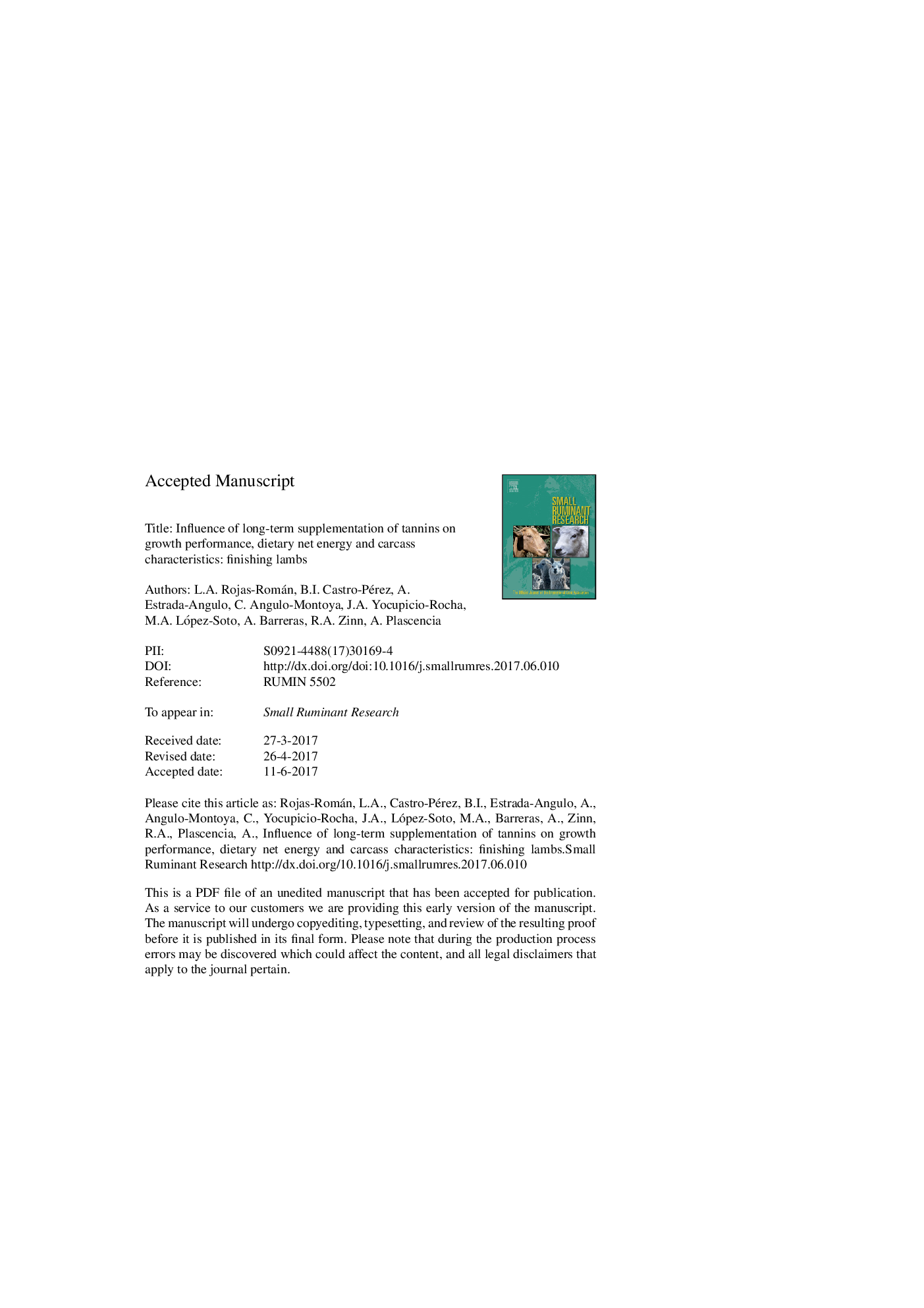| Article ID | Journal | Published Year | Pages | File Type |
|---|---|---|---|---|
| 5544092 | Small Ruminant Research | 2017 | 19 Pages |
Abstract
Forty male lambs (31.53 ± 3.8 kg initial LW) were used in a 70-d feedlot finishing trial. Dietary treatments consisted of a conventional corn-based finishing diet supplemented with 0, 2, 4 or 6 g tannin extract/kg dietary dry matter. The tannin extract (TAN) contained a minimum of 70% tannin, comprised of a 50:50 blend of both condensed and hydrolyzable forms. Supplemental TAN increased (linear effect, P < 0.01) water consumption. During the initial 28-d period, TAN effects on growth performance were not appreciable except for a tendency toward increased gain to feed ratio (quadratic effect, P = 0.08), and increased (quadratic effect, P = 0.04) estimated dietary net energy (NE); responses being maximal at the 4 g/kg level of TAN supplementation. In contrast, during the remaining 42 d period TAN supplementation decreased gain to feed ratio (linear effect, P < 0.05) and dietary NE (linear effect, P < 0.01), and increased (P < 0.01) observed-to-expected dry matter intake (DMI). Overall, TAN supplementation decreased (linear effect, P = 0.02) dietary NE, and increased (linear effect, P = 0.02) observed-to-expected DMI. Based on LSD mean separation, this effect was largely attributable a marked decrease in apparent efficiency of energy utilization at the 6 g/kg level of TAN supplementation. There were no effects of treatments on carcass characteristics or chemical composition of shoulder. It is concluded that long-term supplementation of tannins may not enhance growth performance or carcass characteristics in finishing lambs, and may decrease energy utilization of the diet when is supplemented beyond 4 g/kg DM.
Related Topics
Life Sciences
Agricultural and Biological Sciences
Animal Science and Zoology
Authors
L.A. Rojas-Román, B.I. Castro-Pérez, A. Estrada-Angulo, C. Angulo-Montoya, J.A. Yocupicio-Rocha, M.A. López-Soto, A. Barreras, R.A. Zinn, A. Plascencia,
